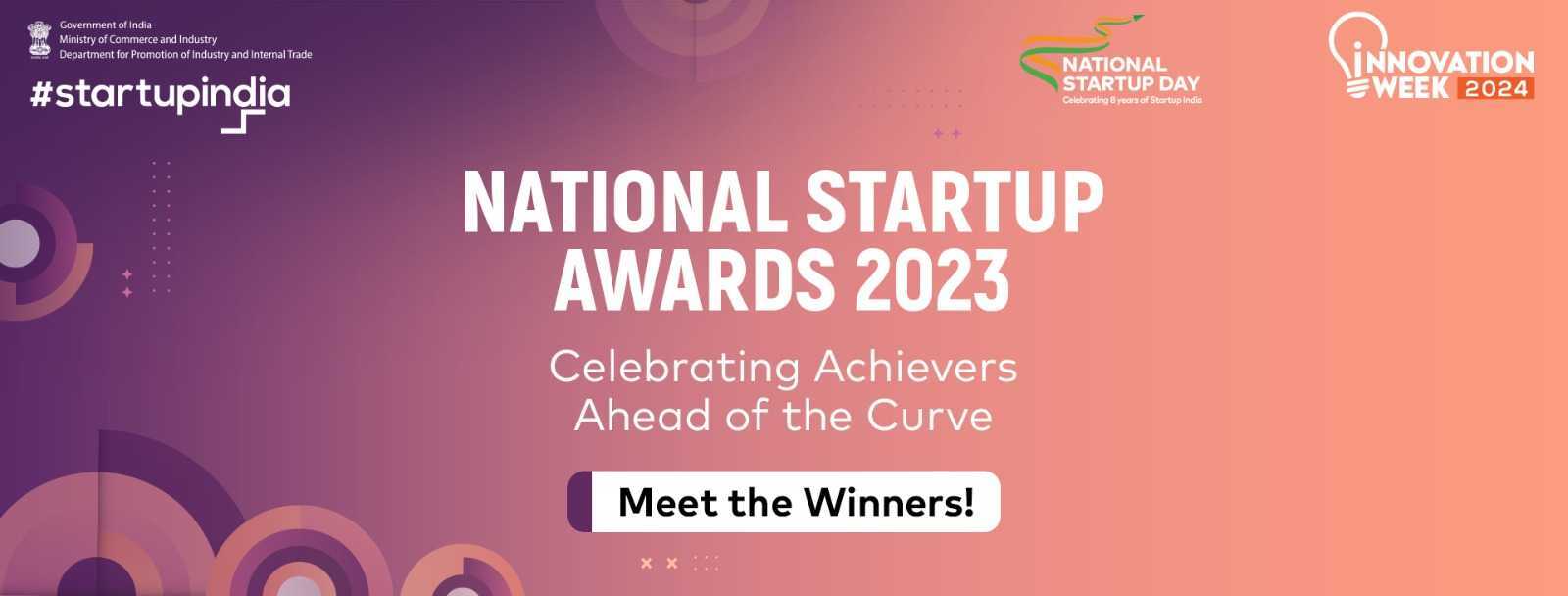Startup Uncut with Mr Sanjiv Bikhchandani
Indian startups in the recent time have proven to be the changemakers at the global level. With more than 1 lakh DPIIT recognised startups, Indian entrepreneurs have caused a dynamic shift in world’s perspective towards our innovation. One such groundbreaking business was InfoEdge, which now owns, operates and invests in various internet-led businesses. In this blog interview series, we have Mr. Sanjeev Bikhchandani, a member of National Startup Advisory Council and Co-Founder of Info Edge India Ltd, as he talks with Shaurya Bhaglal from Startup India team about Breaking Barriers in the journey of a startup towards a scaled-up business.
- Topics covered include identifying opportunities, building product-market fit, acquiring customers, raising funds, managing cash flows, building a team, creating a business model, and scaling up.
- Other areas of discussion include market entry, going public, and general entrepreneurship challenges.
Shaurya: Can you share your personal journey with InfoEdge, growing it into a successful startup and what were the key milestones?
Sanjeev Bikchandani: InfoEdge existed in 1990s and Naukri came about between in 1997. So, we did a couple of small things during these 7 years. There was drifting happening, we had to make extra efforts to make ends meet. This drifting eventually led us to become an internet company. Our first customer offer was a salary survey of what companies were offering to MBA and engineering freshers in IIT/IIM campuses. I got this idea by observing the talent acquisition competition between companies when they came to my campus at IIM Ahmedabad. It made me understand that if someone did a salary survey, it would sell. Therefore, by observing the prospective customer, I was able to understand that the product will work.
Later, we realised how companies were hiring lawyers to assess whether getting a particular trademark would be possible soon, as getting a trademark took about 5 years. It required an assessment of all the registered and pending trademark applications, which were kept manually, making it unreliable and time-consuming. By digitising it, we were able to provide computerised surveys, which the companies needed as it was faster, more reliable and easier.
Both the ideas, hence, showed us that successful businesses work on deep customer insights. It becomes very important to understand & know the customer while talking to them. A business no longer needs to sell their products very hard when business take these insights to provide a solution to their unsolved problem.
Running InfoEdge taught the importance of being customer-focused and constantly innovating
- InfoEdge existed since 1990 but initially drifted for 7 years before becoming an internet company First customer offering was a salary service and second was a trademark service
- Aggregated appointment ads from all over India on the internet platform
- Low revenue in the early years due to the small market size
- Faced challenges like lack of personal funds and infrastructure but managed to overcome them through cost-cutting measures
- New-age startups saw aggregation of menu cards has value, just like aggregation of jobs
Shaurya: Good to understand the importance of customers and insights and delving deep into the problem to provide a unique solution to it. What advice do you give to the startups to break the barriers and while doing so take their startup to the next level?
Sanjeev Bikchandani: Along with knowing your customer, it is very important to build a great team. While doing so, it is equally important to create an atmosphere of trust with the team, co-founders, investors and customers as well. Trust is very important for any of these relationships to work. Without trust, there is no investor & no one will be willing to buy your product. Trust comes with your own honesty, sincerity and thinking about others first. A founder must personally go out meet the customers and make sales calls. The feedback received in this process is very important to grow as a business.
Shaurya: While doing all this for Naukri, what was that one guiding spirit or inspiration that kept you and your team going?
Sanjeev Bikchandani: I won't say inspiration but rather our stubbornness that kept us going. The lack of knowledge led to more knowledge with the continuous hustle to know more and understand more.
Shaurya: Most of this happened to you in the early 2000s when internet was just coming up in India, opportunities were just starting. How was the competition then? Was there any international learning or ecosystem support?
Sanjeev Bikchandani: Starting early means no competition - no matter how imperfect you are, you will always be number one. No matter how little money we had or how small of a company we were, the number one stamp remained. Due to efficient and low-cost structure, even with the little money we were able to turn it out into profits. New competition did come with time such as LinkedIn, and the only way out is continuous innovation. Again, reiterating the importance of talking to customers, developing and delving into the insights. An experiment led us to the discovery that our new salesperson was generating an average of Rs.50,000 per month of sales, with a mere cost of Rs.22,000 per salesperson. With no variable cost to this, we discovered what businesses now understand as a repeatable profitable unit. Every business needs to find their repeatable profitable unit to scale up profitably.
Shaurya: Thank you so much sir for these wonderful insights and tricks. I am sure all the budding entrepreneurs have noted down and will be successful through these life lessons. Anything else you want to add as a bonus tip for our audience?
Sanjeev Bikchandani: I just want to add one more point before we wrap up. I am 60 years old; I started my career in an organisation in 1984. When I look back to the business environment of 1984 and now, there is a complete change in the economy. Rather than a revolution, it is an evolution. The important part being, a lot of this change happened through new industries & innovation, with most of the new businesses being made by first generation starters. There is a new kind of entrepreneur in the market - one who is educated, is from the middle class. Middle class parents in India always had a thing for having financial security where startups were not an option unless you were already from a business family. That has changed. What also has changed are the industries from where the overall ecosystem growth is coming. Instead of just the traditional sectors, sectors that didn't even exist 30-40 years back are driving change and progress. Startups therefore become very important for being the engine of growth. Infosys and HCL were all startups in the early 80s. Therefore, startups are very important and central for growth and going forward. This government must be commended for having recognised this and taking action at the right time. They have made startups an important pillar of their economic growth strategy whether it is through Startup India or its’ Fund of Funds scheme. The kind of steps taken in the past few years are truly commendable.
The above excerpt was taken from the first session of our Ask-Me-Anything series with Mr. Sanjeev Bikchandani. To listen to the full conversation, visit https://www.youtube.com/watch?v=xcs4oVZK8Jk.Ask-Me-Anything sessions are a forum where real, engaging, unfiltered conversations happen with industry stakeholders to help entrepreneurs find the right answers, overcome obstacles with innovative solutions, and gain invaluable insights and learnings from industry stalwarts. Follow Startup India’s official social media channels to know more about the upcoming sessions and ask your questions to industry stalwarts.
7 Startup Success Mantras
- Importance of leadership and team building in transitioning to newer markets - Being a magnet while creating trust for talent is a key requirement for entrepreneurs
- Focus on getting the customer first and solve their problems - Best business ideas come from observing customers. Leverage customer feedback to continuously improve your product and stay competitive
- Investor money is not a guarantee of a viable business, customer money is
- Having a product-market fit and viable economics is crucial for a viable business - Survive competition by managing costs well
- To scale profitably, a company must discover its repeatable profitable unit. A repeatable profitable unit can be anything, like a hamburger, outlet, or sales person
- Networking is important for entrepreneurs to establish valuable connections
- It's better to raise money when investors come to you rather than actively seeking investment. It is important to under commit and overdeliver in business plans
Investors Funda
- Key aspects to look for in early-stage startups include evidence of natural traction and a quality team
- Growth opportunities are abundant in both tech and non-tech sectors in India. Al and deep Tech are emerging sectors that will impact all other sectors













